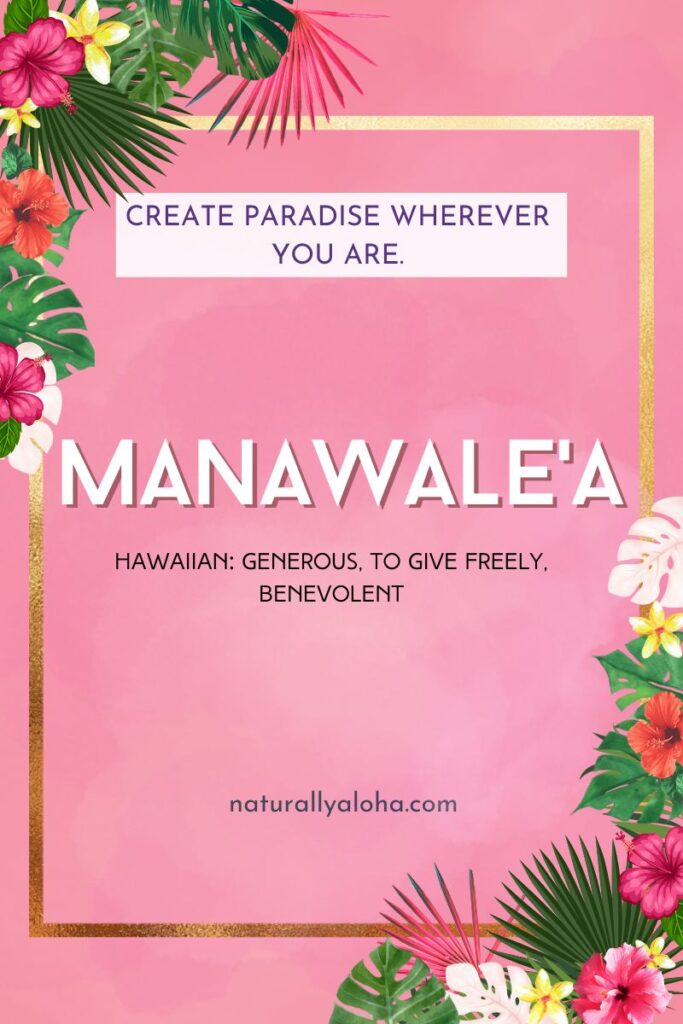
Do you want to learn how to truly be generous? Manawale’a.
If you’ve been to Hawaii, did you feel a sense of generosity? Did it feel like there was an abundance… an abundance of love, kindness, mercy, and more?
Kindness and love, aloha, are the core of the Hawaiian culture. And generosity stems from aloha. In Hawaiian culture, it’s common to feed others who come to the house, to offer resources, or to even let someone merge in on a busy highway. This is generosity, showing a willingness to give more than is necessary or asked. Generosity is especially an important value in the Hawaiian culture.
Manawale’a is the Hawaiian word for “generosity,” and it is one way that we can show our aloha, love for others. Those who live in a spirit of manawale’a are generous, benevolent, and they give freely of their time, and resources. And beyond that, they give freely of love, forgiveness, and kindness in a world that is increasingly polarizing, critical, and unkind.
Manawale’a is literally a time of joy
When we break down the word, it looks like this:
Manawa – time, season, appointment
Le’a – joy
Quite literally, manawale’a means “time or season of joy.” How is generosity connected with a time of joy?
When we are generous, it is a joyful time. Have you ever served someone, only to find that you probably needed to serve more than they needed the service? Service fills our souls. Especially when we give with a willing heart, we fill the need that each of us has to love and be loved.
So how can we have seasons of joy, especially in times that we are struggling? Whether we’re struggling financially, physically, emotionally, or mentally, how can we create seasons or times of joy for ourselves and others? How can we be generous when we don’t “have enough?”
In this article we will explore manawale’a and how to be more generous, which means going against the grain of the natural man that is inclined to selfishness and pride.
Manawale’a is Charity
Charity is the pure love of Christ. It is aloha, loving without any conditions. When we choose generosity, we choose charity. The other way I want us to consider manawale’a is by donating to a charity. There are so many wonderful nonprofit organizations out there that are actually doing great work. Do we take the time to give? It’s easy to think that others are out there giving, so we don’t have to contribute.
But contrary to what people think, you can make a difference. Your generosity can change someone’s life for the better. Even if you never find out what exact difference you’re making, your generosity can bless someone who doesn’t have what you have.
A Recent Example
As an example, recently my husband and I have been wanting to do something more to help the O.U.R. (Operation Underground Railroad). They are an organization that finds and frees children from trafficking. When we first found out about this, we knew this was something we had to do. Child slavery—especially child sex slavery—is something we just cannot ignore.
But how could we do something, beyond giving a monthly donation or spreading the word, like how I’m doing in this article? Could we, possibly, leverage our skills to do more?
With that said, my husband and I are going to put together a fundraising obstacle course. We are in the process of finding sponsors to contribute funds for each of the obstacles, which my husband will build. We’ll leverage my skills in marketing, writing, and graphic design to get the word out. And then we’ll leverage our combined skills with our YouTube (Kanani Life) to spread the message about O.U.R.’s amazing work.
What if?
To say we are a little daunted by the work ahead is an understatement. There are so many questions and “what if’s” in our minds: What if people don’t want to help? What if nobody shows up? What if???
But then we think about who we are helping and why we want to do this. We feel so much charity and love for these children we’ve never met, but who are enduring agonizing, depraving, and the lowest of evils. And we are doing it for them. This is manawale’a.
When we commit to manawale’a, we expand our horizons and come up with creative ways to be generous. We aren’t content with saying, “Well I don’t have the means to donate” or “What difference would I make?” Instead, we ask, “What can I do? How can I help?”
If we truly want to become more generous, we have to be generous with ourselves. We have to adopt an abundance mindset so that the work we do will help and have an impact on others.
Then we have to believe in our vision, and know that generosity inspires everyone, and we’ll all rise and lift each other to truly help those in need.
Manawale’a doesn’t seek to be known
Generosity is best when it’s done from the heart. It’s easy to do things to get credit or accolades. In some church and family cultures, generosity might even be an “all show” thing. A person might give because they’re being watched by others.
Everyone wants credit, but true generosity is usually unknown to others… except God.
In the scriptures, we’re told to “do not alms before men” but to do good in secret, so that God the Father, who sees in secret, can reward us openly (Matthew 6:1). Have you ever felt good about doing service for someone, but nobody else knew about it?
Generosity doesn’t have bells and whistles each time it’s performed. Instead, it’s the quiet and small acts that we do that make all the difference.
I remember growing up on the Big Island of Hawaii and having lots of aunts (who weren’t related by blood) in my church who truly looked out for me. When I served an 18-month church mission in the Philippines, there was one aunt who sent me Big Island Candies around Christmas and Easter time. This meant the world to me. And the thing was… nobody knew she sent those chocolates. But it was her quiet and generous example that has inspired me to do the same… sending notes to people, PMs of encouragement, letters of congratulations, or even dropping food off at someone’s house. With manawale’a, the beneficiaries of our generosity don’t need to know that it’s us…. because when we serve, it’s out of love for God and our fellow men. And that, in itself, is an honor.
Be generous with others
If you’ve read my book, Aloha State of Mind, you know that growing up in Hawaii wasn’t all paradise. My family was really poor and emotionally and mentally, I was not in a good place. However, I decided to ho’omau, keep going, because things always get better. And they did.
But it was through other people and their generosity that gave me glimmers of hope.
As I was preparing for an 18-month church mission, I budgeted very strictly so I could provide for myself during and after the mission. There was a kind lady at my church who picked me up from my house and took me shopping to get supplies for the mission. We got everything I needed, from a suitcase and bedding, to toiletries and clothes. I am eternally grateful for angels on earth, who were so generous with me. Her example, and many other examples, continue to inspire me to this day.
Can you think of a time someone was generous with you, and how that affected your life? Didn’t that bring you joy?
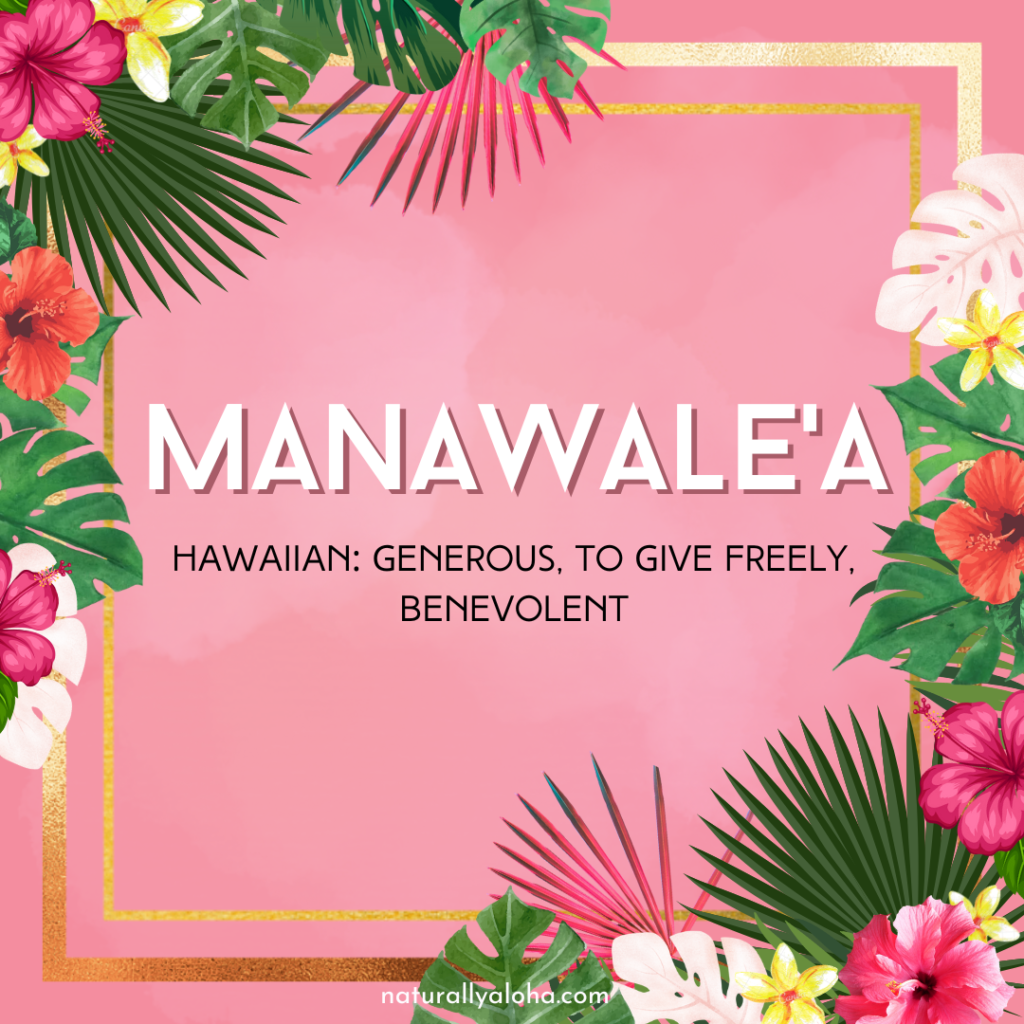
God is generous
Something I truly believe is that when you are generous with others, God is generous with you. We read in the scriptures, time and again, how God wants to “open the windows of heaven” and pour out blessings that we won’t have room enough to receive it if we obey his commandments, if we give of ourselves to God and to others, if we truly love our neighbors as ourselves.
In James 1:4 it says that if we lack wisdom, we can ask God and he gives “liberally.” Doing something liberally means giving, using, or doing something in a generous amount. God gives liberally, even when we give him just a little.
If God gives liberally, can we do that for others? Or even ourselves?
There have been many instances in my life where I saw someone in need and thought twice about helping.
Are they really in need?
However, the times I did stop to help have changed me. It’s easy to think sometimes, “Well they did this to themselves.” Maybe a person did bring a burden on themselves, but it’s not our job to judge. It’s our job to love.
Isn’t that what aloha is? When we give generously to others, God gives generously to us, and this includes forgiveness, hope, and peace.
And this leads to the next point…
Give freely
This doesn’t mean just giving of your resources, but we can all do better at giving freely of time, forgiveness, kindness, and compassion.
Luke 23:34 talks about how Jesus, while on the cross, and being in extreme pain, forgave those who tormented him. He asked God the Father to forgive them too! What a perfect example of forgiveness. We are to forgive our loved ones, our enemies, and even those who sinned against us out of ignorance.
That means forgiving the person who rudely cut you off on the road, or the cashier who gave you an attitude, or the person who commented unkindly on your post. As I once wrote in Aloha State of Mind and the value of ha’aha’a, humility, we are not above anyone else.
So let’s give freely of forgiveness.
Social media and forgiveness
I want to share a personal example of this. Recently I felt as though I was being bullied on social media. As an author and creator who puts their work out into the world, this is expected. However, the unkindness came from other authors, and that was very hurtful for me. My first instinct was to let it go. This was the second time something like this had happened in this particular author group, and I didn’t want to stir the pot.
The second thing was a rush of emotions: anger, sadness, disappointment. I vented to a friend who validated my feelings and encouraged me to say something.
But I didn’t want to say something without first working through my emotions. Sometimes, on social media, it’s hard to read what people are saying, and I wanted to give people the benefit of the doubt.
That was probably one of the biggest lessons I learned in this: give people the benefit of the doubt. Assume that people are good.
It’s easy to think that everyone is out to get you, but people are good in general. I forgave all the people who participated in this post, and then I posted about my feelings and asked for professionalism and kindness going forward. Everyone was really nice, understanding, apologetic, and professional. I’m so grateful for forgiveness, and grateful that it’s something we can give freely.
I italicize “can” because not many people want to do it. It’s easier to stew, backbite, gossip, and wallow in self pity. But Jesus taught us the way: forgive.
Can we give freely of forgiveness so that we can live manawale’a and have more seasons of joy in our lives?
Manawale’a: a season of joy
As we give of ourselves, time, resources, and talents freely to others, we truly can become a source of hope and aloha. We can live in and create more seasons of joy for ourselves and others.
With manawale’a we give our lives purpose. So many people don’t know why they’re here or how they can get satisfaction out of life. It’s easy to go through the daily grind, thinking “I’m just one person, so what can I do?” But every person can make a difference. It just takes one step, one donation, one thought… generosity and benevolence is closer than we think.
As we live more with manawale’a, we can experience seasons of joy throughout our entire lives, and that truly makes all the difference.
I hope this article inspired you to be a little more generous with your thoughts, actions, words, talents, skills and resources.
🌺 With aloha always,
Lei
Did you enjoy this article?
What did you think? Was there something you were inspired or felt pressed to do because of this article? What does living with manawale’a look like for you? Let me know in the comments below. 🙂 Comments and word of mouth help me get my writing and work out to more people. Mahalo!
Save this for later!
Enjoyed this article? Save it for later!


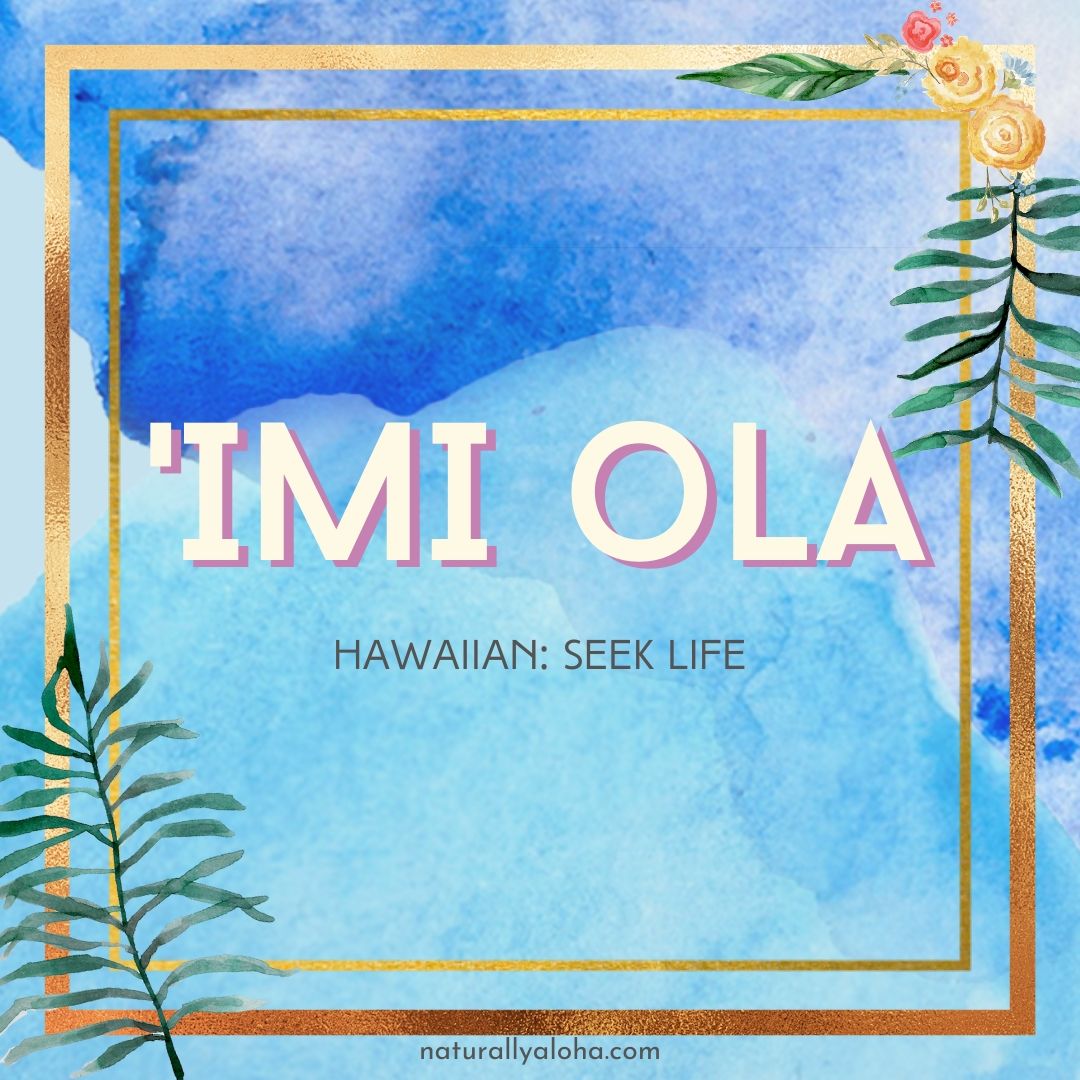
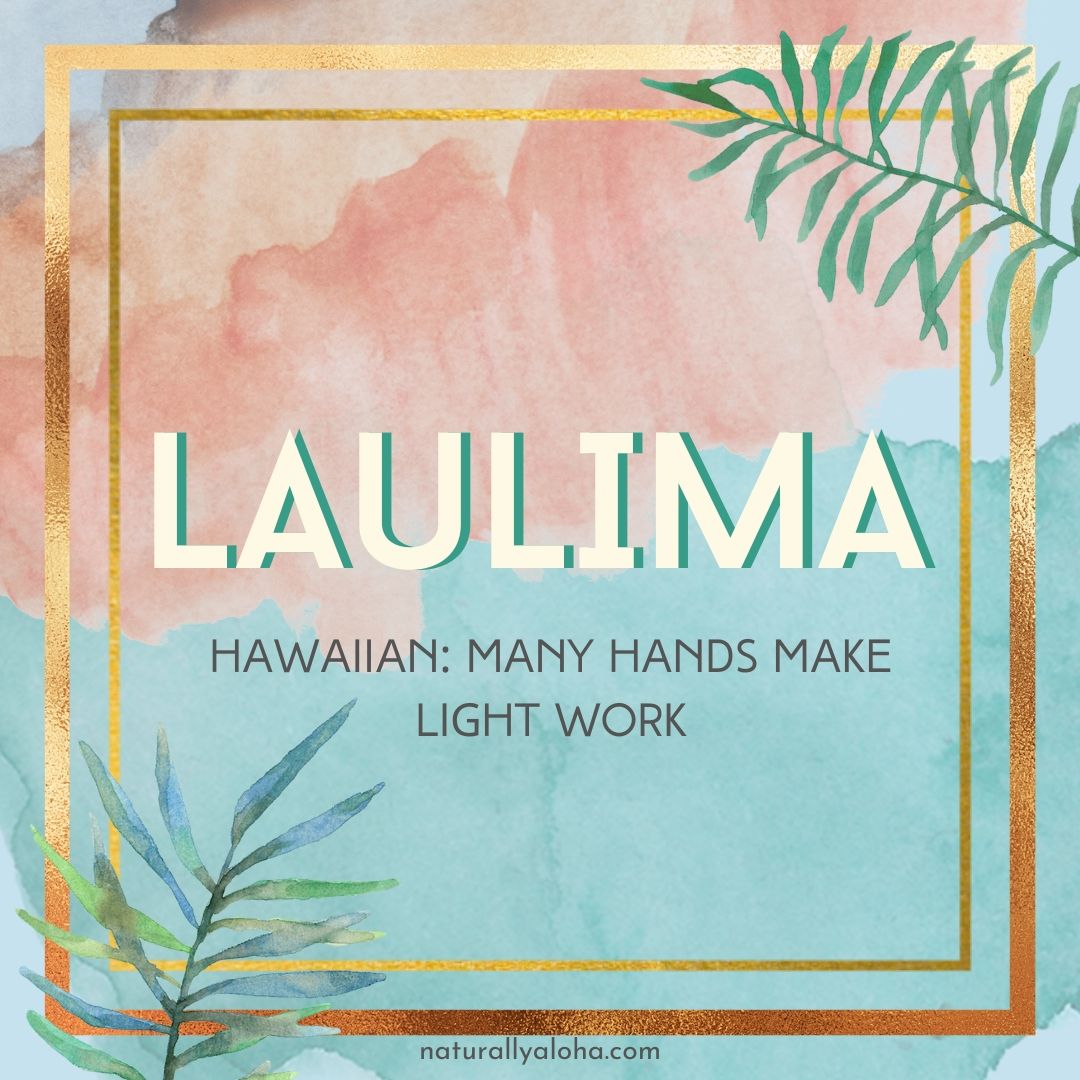



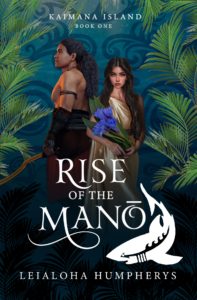

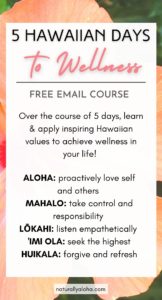


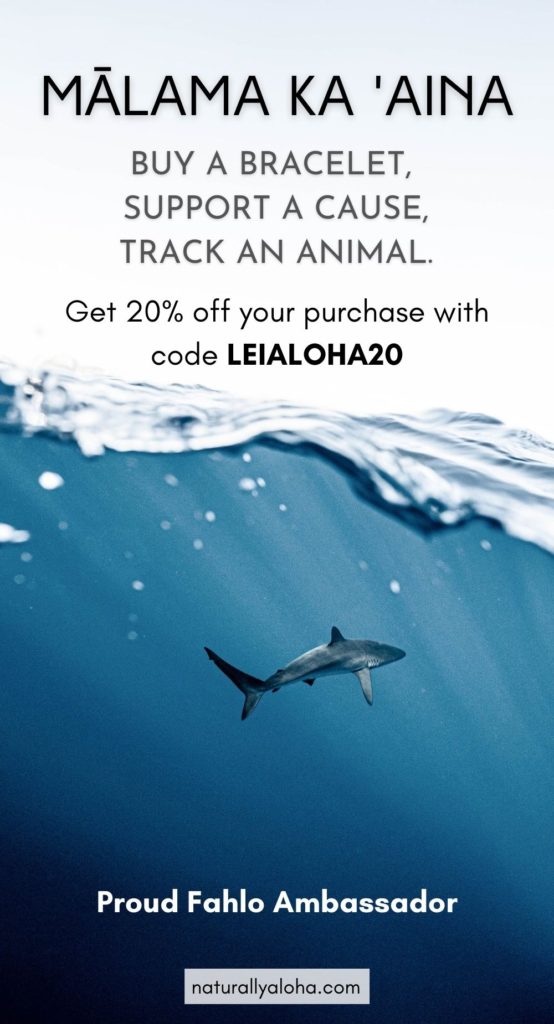
I so enjoyed this article, and applaud your giving spirit as well as the maturity with which you handled feeling bullied.
The sentence that struck me forcefully was ‘Assume that people are good’.
Having come from an abusive childhood, my first instinct is to think people are out to harm me.
I will carry your words with me. Mahalo!
(I spent a few years in my early 20s on Maui.)
Aloha Beth,
I’m so grateful these words resonated with you. I hope you can find healing and peace from your abusive childhood. You are wonderful and strong and capable. Sending aloha! 💙
Sincerely,
Leialoha